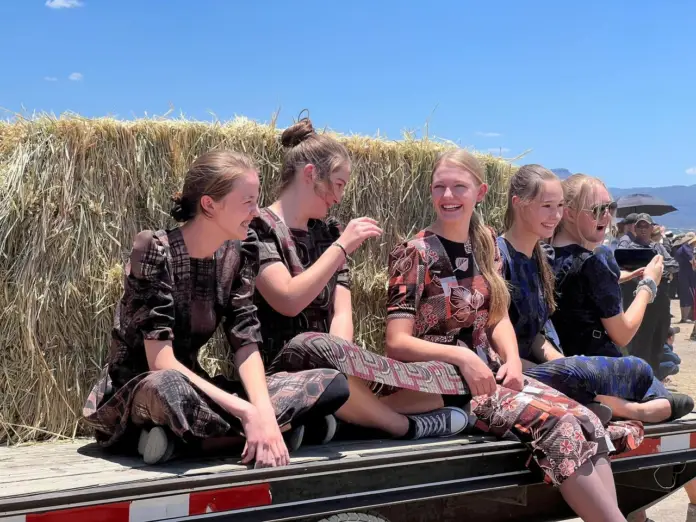In the municipality of Nuevo Ideal, Durango, lives one of the largest Mennonite communities in Mexico. Established a century ago, they have maintained their culture, language and traditions.
The Mennonite community in Durango is one of the largest in the country, with around 10 thousand people distributed in 34 colonies. These colonies are located mainly in the municipality of Nuevo Ideal, about two hours from the state capital.
Since their arrival more than a century ago, the Mennonites have managed to establish themselves as a fundamental part of the local economy, maintaining their traditions and customs, while adapting to the social and economic changes in their environment.

What is Mennonite culture like in Durango?
The Mennonite community is distinguished by its strong attachment to its roots and values. Over the years, the Mennonites have requested permission from the Mexican government to settle in the country, always on the condition that they can preserve their lifestyle, their customs and habits.
According to authorities, the Mennonites are organized in a cooperative manner and maintain a very particular social structure, with a governor and sub-chiefs in each colony, a position that can be re-elected up to three times.
Regarding their educational system, Mennonite children attend schools where they are taught in Low German, their mother tongue, as well as mathematics, languages and other subjects important for their development. Social life within the community is also marked by a focus on work and religiosity, and interactions outside the colony with outsiders are minimal.
What is the economy of the Mennonite community in Durango based on?
One of the most important economic pillars for the Mennonite community in Durango is cheese production. In the Nuevo Ideal region, high-quality cheeses are made, such as cheddar and Chihuahua, which are exported not only within the country, but also to the United States.
It is important to note that cheese production is a cooperative business involving more than 700 partners, who share the profits equally. In addition to the cheese factory, agriculture and livestock are also fundamental activities for the community.
Although the Mennonites have had to adapt to technological advances in these fields, they continue to maintain a work discipline that has allowed them to excel, not only locally, but also in broader markets. The production of sausage and other meat products is also a key activity, and livestock plays a crucial role in maintaining the economic stability of the community.
Mennonites in Durango have problems with the titling of their lands
Despite their economic success, the Mennonites in Durango face several difficulties, mainly related to their access to public services and greater integration with the rest of society. Although the Durango state government has worked to recognize the Mennonites as an ethnic minority, there are still problems such as the lack of title deeds to their lands and the language barrier in legal proceedings.
Even though there are problems to be solved, the Mennonites of Durango are a model of perseverance and teamwork, who have known how to adapt to the new demands of the market without losing sight of their cultural identity. In recent years, they have even been part of tourist programs such as “Destinos Durango,” which seek to publicize their traditions and their importance within the state.

Source: noro




